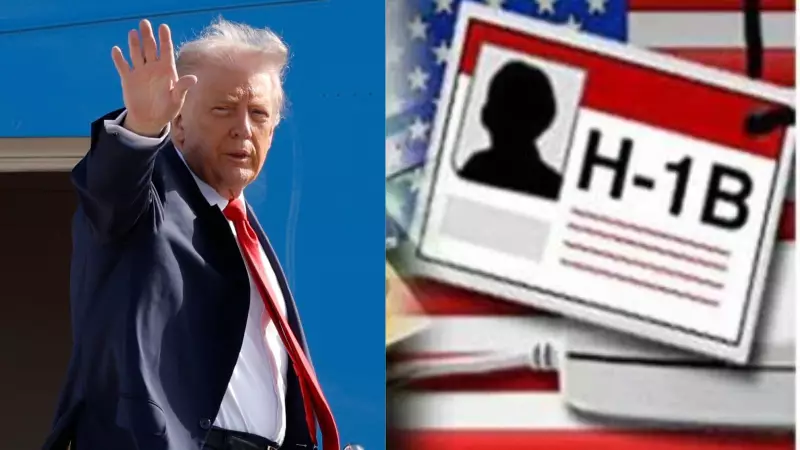
A coalition of American lawmakers has launched a significant appeal to President Donald Trump, urging him to reconsider the proposed massive increase in H-1B visa fees that could reach up to $100,000. The bipartisan group warns that this controversial measure could deliver a devastating blow to the crucial strategic partnership between the United States and India.
The fee hike, part of the Healthcare Relief Act, represents one of the most substantial increases in US visa history. Lawmakers from both Democratic and Republican parties argue that such a dramatic cost escalation would not only harm American companies relying on skilled foreign talent but also strain diplomatic relations with one of America's most important allies in the Asian region.
Bipartisan Opposition Gains Momentum
In a strongly worded letter to the White House, Congress members emphasized that the proposed fee structure would "impose significant costs on American companies, hindering their ability to compete in the global market." The bipartisan nature of this opposition underscores the widespread concern about the potential economic and diplomatic fallout.
The lawmakers highlighted how Indian professionals have been instrumental in driving innovation across various sectors of the American economy, particularly in technology, healthcare, and engineering fields. They cautioned that making it prohibitively expensive to hire skilled workers from India could force companies to relocate operations overseas, ultimately costing American jobs.
Strategic Partnership at Stake
The congressional appeal specifically referenced the importance of maintaining strong India-US relations, noting that "the people-to-people ties between our two nations form the bedrock of our strategic partnership." This diplomatic relationship has become increasingly vital in recent years, with both countries collaborating on defense, counter-terrorism, and economic initiatives.
Industry experts suggest that the fee increase could particularly impact:
- Technology companies dependent on specialized skills
- Healthcare institutions facing staff shortages
- Research and development organizations
- Engineering and manufacturing firms
The proposed legislation comes at a time when the United States is seeking to strengthen its alliances in the Indo-Pacific region, making the timing particularly sensitive from a diplomatic perspective.
Economic Implications for American Businesses
Beyond the diplomatic concerns, lawmakers pointed to the practical economic consequences for American enterprises. The $100,000 fee per H-1B visa would represent one of the highest such costs globally, potentially making the United States less attractive to international talent precisely when global competition for skilled workers is intensifying.
Many American companies have expressed concerns that such measures could force them to establish more operations outside the United States, potentially weakening the domestic innovation ecosystem that has been a key driver of economic growth.
The outcome of this appeal could have far-reaching implications for US immigration policy, international business operations, and the future of America's strategic partnerships in Asia.





